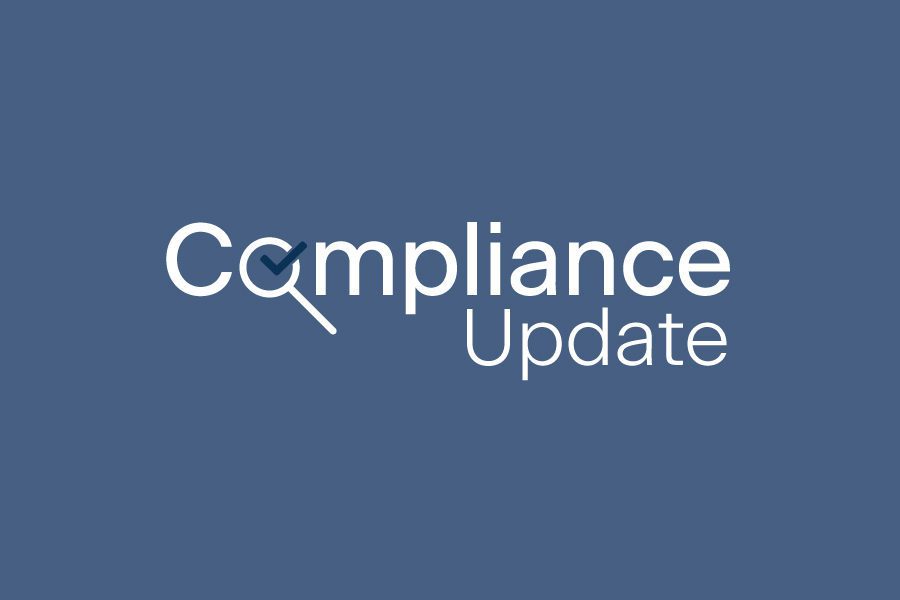IRS Provides Transition Relief for 2020 ACA Reporting
On Oct. 2, 2020, the Internal Revenue Service (IRS) issued Notice 2020-76 to:
- Extend the due date for furnishing forms under Sections 6055 and 6056 for 2020 from Feb. 1, 2021, to March 2, 2021;
- Provide a final extension of good-faith transition relief from penalties related to 2020 information reporting under Sections 6055 and 6056; and
- Provide additional penalty relief related to furnishing 2020 forms to individuals under Section 6055. Under this relief, employers will only have to provide Form 1095-B to covered individuals upon request.
As a reminder, these extensions relate to furnishing forms only, not filing forms with the IRS. The due date for filing forms with the IRS for 2020 remains March 1, 2021 (since Feb. 28, 2021, is a Sunday), or March 31, 2021, if filing electronically.
Employer Takeaway
The IRS is encouraging reporting entities to furnish 2020 statements as soon as they’re able. No request or other documentation is required to take advantage of the extended deadline. Also, please be aware that this is the last year that the IRS intends to provide good-faith relief from penalties. See our compliance bulletin for additional information on the transition relief available.
HHS Renews COVID-19 Public Health Emergency
On Oct. 2, 2020, the Department of Health and Human Services (HHS) renewed its determination that a public health emergency exists as a result of the coronavirus (COVID-19) pandemic, effective Oct. 23, 2020. This public health emergency, originally declared to have existed as of Jan. 27, 2020, was previously renewed on April 21, 2020, and July 23, 2020. This public health emergency renewal extends the duration of a number of requirements related to the COVID-19 pandemic, including requirements under the following laws:
- The Families First Coronavirus Response Act (FFCRA); and
- The Coronavirus Aid, Relief and Economic Security (CARES) Act.
Among other things, these laws require group health plans to cover certain COVID-19-related diagnostic and preventive health services without cost-sharing or other barriers. These requirements are generally effective from March 18, 2020, through the duration of the HHS-declared public health emergency.
Employer Takeaway
Employers should have already made these changes to their health plans, so no further action should be necessary. However, please note that this public health emergency declaration is separate from the COVID-19 National Emergency declared by the President, which impacts the end of the “outbreak period” (beginning March 1, 2020) for deadlines related to HIPAA special enrollment, COBRA continuation coverage and other employee benefit plan deadlines.
DOL Proposes Changes to FLSA Independent Contractor Classification Test
On Sept. 22, 2020, the U.S. Department of Labor (DOL) announced a proposed rule to clarify how employers should classify their workers as either employees or independent contractors. Accurate worker classification enables employers to determine which obligations, protections, rights and benefits apply to their employees under the law. Currently, there is no single rule or test for worker classification under the Fair Labor Standards Act (FLSA). This proposal would establish a five-factor “economic realities test” to determine a worker’s status under the FLSA. The five factors are:
- The nature and degree of the worker’s control over the work.
- The worker’s opportunity for profit or loss based on initiative and/or investment.
- The amount of skill required for the work.
- The degree of permanence of the working relationship between the worker and the potential employer.
- Whether the work is part of an integrated unit of production.
The proposed rule identifies the first two factors as “core factors,” leaving the remaining three as “additional guideposts” in the analysis. Finally, the proposed rule recommends that during the classification process, employers should evaluate the worker’s actual job responsibilities rather than his or her contractual or theoretical job description.
Employer Takeaway
While the economic realties test is only a proposed rule, employers that use 1099 Independent Contractors should review their standards for classifying them as such and how the new rule, if enacted unchanged, would affect that classification.


